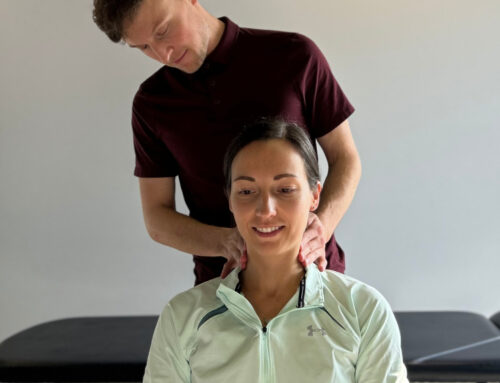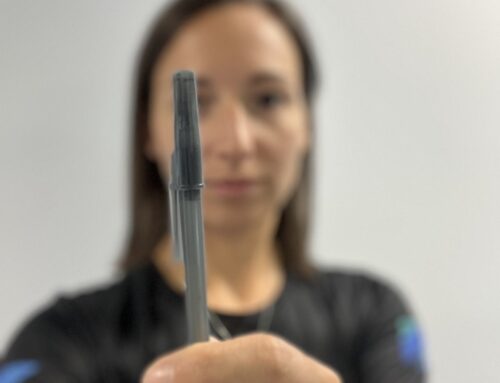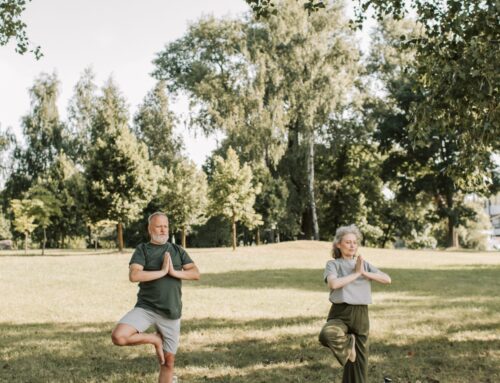
Rehab for Dizziness, Balance, & Vertigo
(aka Vestibular Rehab)
Alright, let’s talk VESTIBULAR today. Read on to learn what this means and how Physiotherapy can help treat your dizziness, imbalance, and vertigo.
What does “vestibular” even mean?
The vestibular system is a sensory system that contributes to our sense of orientation, motion, and balance. The main components of the vestibular system are found deep within our ears. Essentially, the vestibular system is responsible for helping us keep our balance by coordinating what our eyes see and what our bodies feel (i.e. if we’re moving or sitting still). Sometimes these two systems conflict. For example, when we’re in a moving car and we look down to read something on our phones – the body feels the car is moving but our eyes are locked on a stationary object. Since these two sensations are different, they can sometimes cause the body to be confused which then results in dizziness.
It’s important to note that vertigo and dizziness are not the same and are not interchangeable terms!
What is Dizziness?
The term dizziness is used to describe a variety of sensations such as feeling disorientated, light headed, swaying, off balance, etc. Dizziness is a general term and can be caused by issues from many different parts of the body.
What is Vertigo?
Vertigo is a SPECIFIC type of dizziness. It is an illusion of movement, an often described as the floor spinning or the person experiencing it being on a boat. Vertigo can cause nausea or loss of balance, making it very debilitating for many people who experience intense bouts of vertigo. Vertigo is typically worse when the head is moved or in a certain position. BPPV (Benign Paroxysmal Positional Vertigo) is the most common cause of vertigo.
What types of problems can a Vestibular Physiotherapist help with?
BPPV, disorders affecting equilibrium, problems with dizziness/balance, post-concussion symptoms, falls and symptoms post MVA related to whiplash/concussion
How do I know if I need to see a doctor for the dizziness I am experiencing? How do I know if I need a Vestibular Physiotherapy Assessment?
Most commonly clients will see their medial doctor for a diagnosis before attending a Vestibular Physiotherapy Assessment. Since the causes of dizziness are so varied, it is important to seek medical advice prior to engaging in treatments and exercises.
What can a Vestibular Physiotherapist do for dizziness?
A Physiotherapist who has vestibular training can complete a full assessment for individuals experiencing dizziness, vertigo, balance disorders, falls and post concussion symptoms. Based on the findings during the assessment, treatments may include specific hands-on repositioning treatments for BPPV, customized exercise programs, falls prevention strategies and education to help manage your symptoms.
What to expect during a Vestibular Rehab Appointment:
-
- A full history will be completed, where you will discuss the onset, frequency, and other details your symptoms.
- We then screen for more serious causes of dizziness. This may result in referrals to a doctor.
- Assessment of eye movements with various eye exercises/drills.
- Checking sensitivity to motion and position changes with hands-on exercises.
- Assessment of standing and moving balance.
- Testing other parts of the body that could be contributing to the dizziness, like neck tension for example.
- After completion of the assessment, we discuss our findings and the treatment options that would be best for your particular case. These can include eye exercises, training to reduce sensitivity, balance challenges, and strategies for dealing with cognitive and psychological impacts.
- In cases of Benign Paroxysmal Positional Vertigo (BPPV – the most common cause of vertigo), canalith repositioning maneuvers can be used. This means we go through various movements to help the crystals of the inner ear re-align themselves. The results are often dramatic with clients feeling better RIGHT AWAY. However, some clients also feel more dizzy right away and feel better a short time later. It is recommended to have somebody you trust pick you up from your appointment to get you home safely.
- Balance retraining is also effective for clients who don’t necessarily have a “vestibular” problem, but have orthopaedic, sensory, or other brain-related disorders affecting their equilibrium.
- A full history will be completed, where you will discuss the onset, frequency, and other details your symptoms.
Still Have More Questions?
You may also call us today or use the chat button to speak to a therapist and find out if Vestibular Physiotherapy can help you decrease your symptoms and allow you to move better so you can live better.
Not sure which treatment is right for you? Contact us today to talk to a professional and find out how we can help you.







Follow us on Facebook or Instagram for the most up-to-date news.